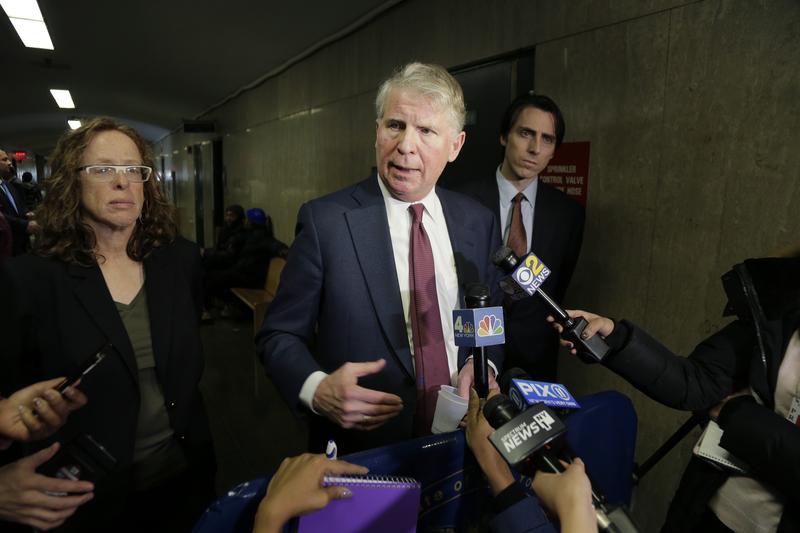
Any day now, President Trump is expected to ask the U.S. Supreme Court to decide whether he can be investigated for a crime while he is president.
It's part of his fight to keep his tax returns out of the hands of Cyrus Vance, Jr., the District Attorney in New York County. Vance, a Democrat, has subpoenaed the documents as part of an investigation into how Trump and his company handled hush money payments to two women with whom he allegedly had affairs.
This is not the first time a president has pushed back on a subpoena—Thomas Jefferson, Richard Nixon, and Bill Clinton all attempted to fight orders to appear in court. Peter Baker, chief White House correspondent for The New York Times and the author of "Impeachment: An American History," told WNYC's Jami Floyd that these incidents all helped define limits on the presidency and cemented the court as a co-equal branch of government. Baker said the same thing might happen if the Supreme Court decides to hear Trump's case.
"[Trump's lawyers] are saying if he can't be indicted, we're saying he can't even be investigated. That's a position nobody has taken to any success in the past, it's such an expansive interpretation of things that so far hasn't found a lot of traction with the judges, but it will help, I think, define the limits of where the executive immunity and privilege lie," said Baker.
For the full conversation, click "Listen."
The Docket is our series in which WNYC’s All Things Considered host Jami Floyd takes a deep dive into the American legal system.
